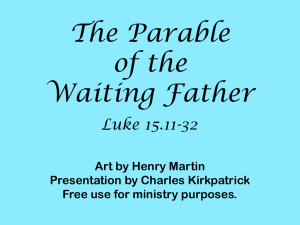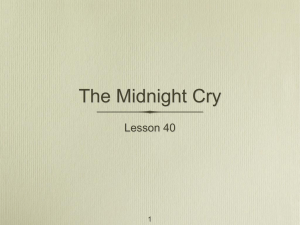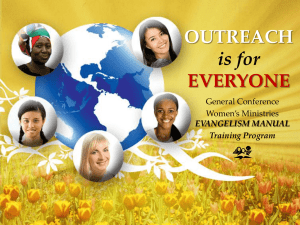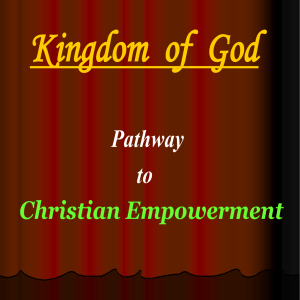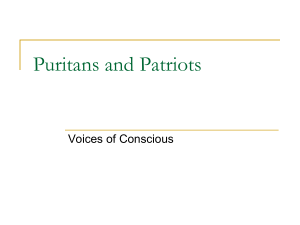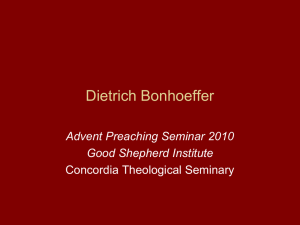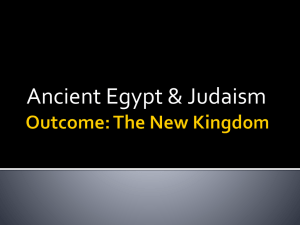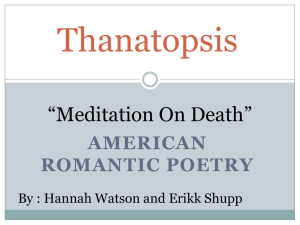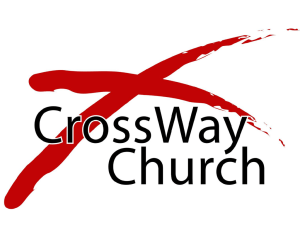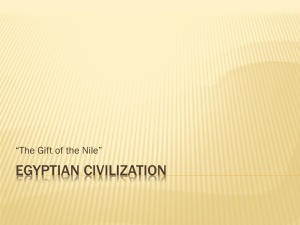Helmut Thielicke - Concordia Theological Seminary
advertisement
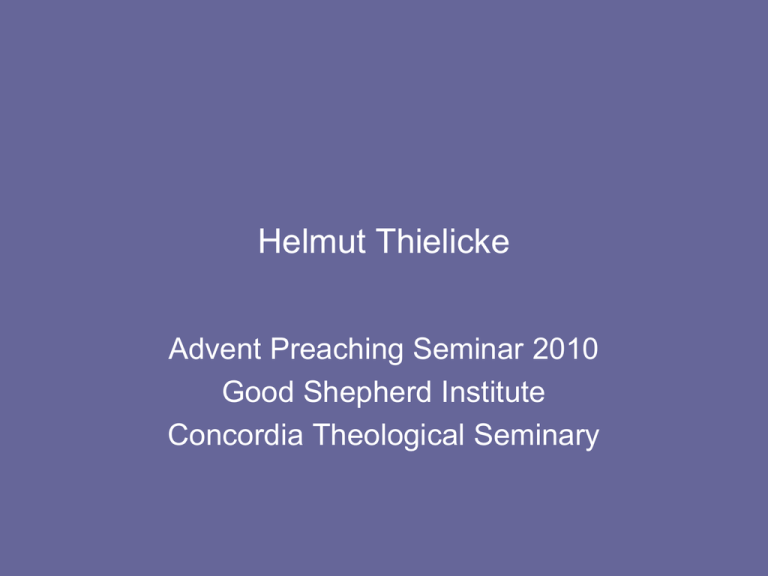
Helmut Thielicke Advent Preaching Seminar 2010 Good Shepherd Institute Concordia Theological Seminary Thielicke: His Life & Times • Born on December 4, 1908 in Wuppertal • Died on March 5, 1986 in Hamburg Thielicke: Early Years • Hardships of life during WW I • Sickness & recovery • Early theological influences: Rudolf Hermann, a Luther scholar and Julius Schniewind, a New Testament scholar • Doctoral work at Erlangen under Paul Althaus Nazi Years • Thielicke was called to Heidelberg in 1936 and served there until 1940 when he lost his post on account of his opposition to the Nazi agenda. • After a brief stint in the military, Thielicke received a call to a congregation in Ravensburg near Lake Constance. • In 1942 he would go to Stuttgart where he would serve as theological advisor to Bishop Wurm, giving both sermons and theological lectures. Tübingen • After the war, Thielicke was called to Tübingen were served with Karl Heim, Adolph Koeberle, Otto Michel, Gerhard Ebeling, Ernst Fuchs. • Here he completed the first volume of his Theological Ethics. Hamburg • In 1954 he is called to Hamburg where he would be instrumental in founding the theological faculty. • It was at Hamburg that Thielicke gained fame as a preacher. • This period of Thielicke’s life would include overseas travel and speaking. • The student revolution of 1967 would color the final decades of his life. • In his retirement, Thielicke would continue to be active with his “Faith Information Project” and preaching. Advent Themes in Thielicke’s Preaching • The theological task is “actualization” of the Christian message rather than “accommodation.” • Preaching occurs in the “borderline situations.” • Preaching enters into the “depths” of human life. • The strong eschatological note in Thielicke’s preaching is especially appropriate to Advent coupled with themes of waiting, endurance, and hope. See, for example, his sermon on Luke 1:67-79, “For What are we Waiting?” in How to Believe Again, 169-181) Advent Themes –cont • Having the victory of the last hour means we can endure the next few minutes: “It is no longer the fog-shrouded landscape where I anxiously keep watch because somewhere out there dark dangers are brewing against me. No, everything is entirely different. We do not know what is coming, but we know who is coming. The final hour belongs to us. We need have no fear of the next minute” (H. Thielicke, Being a Christian When the Chips are Down, 28). Advent Themes-cont • In several of his sermons on the last things, Thielicke makes reference to an observation by Joseph Wittig: “Joseph Wittig once said that a biography should not begin with the birth of a person but rather with his death. It should be written in light of the end, for only from this point can we see a life in its fullness. If we think of history, or at any rate the writing of history, as a kind of biography of the world a similar thesis might be advanced” (H. Thielicke, Out of the Depths, 78). Advent Themes-cont • “One of the central thoughts is that, at Christmas, God comes to us in the depths….He comes in the stable, to the disconsolate, the sick, and the despairing; he trudges in the long line of refugees; and if everyone and everything should desert me in my final hour, I can say, ‘If I should have to depart, depart not from me.’ Then he comes even to the dark valley of death. Crib and cross are of the same wood” (On Being a Christian When the Chips are Down, 101; also see H. Thielicke, Christ and the Meaning of Life, 11-29 for similar expressions in Advent & Christmas sermons). Thielicke’s Preaching on the Lord’s Prayer • Our Heavenly Father is a collection of sermons preached by Thielicke in the midst of the air raids on Stuttgart in World War II. Preaching in a World That Seems Fatherless • “Man is walking through the dark forest of life in the gloom of night. Specters are lurking around him and strange sounds disquiet him. The dark forest is full of dangers. Modern man calls this weird sense of threat and danger the anxiety of life, the fear of life itself. He would give a lot if there were someone to go along with him, someone who would put his hand on his shoulder and say to him, ‘Don’t worry, I am with you, I know the pitfalls, I know the dangerous cliffs, I know where the robbers lie in ambush, I’ll get you safely through. As long as I am with you nothing can hurt you.’ He would give a lot if this were so.” (Our Heavenly Father, 18) • Contrary to the appearances of this life, we have One who is our Father. Advent means we are not left alone for Immanuel is here in our world. Prayer: God Speaks First • “God has always spoken first; long ago, before our little lives emerged from the deep darkness of our millennium-old chain of ancestors into the light of the world, Jesus Christ walked the earth, died and rose for us, ascended into heaven, and brought us the Father. God is always there first, and therefore our praying is always and only an answer to this simple fact. Take Bethlehem and Golgotha out of the world, and the cry of God will be silenced and praying becomes meaningless.” (Our Heavenly Father, 31-32) Hallowed be Thy Name • Two requirements of prayer: (1) We must know to whom we are speaking; (2) We must know who we ourselves are (Our Heavenly Father, 44). • To pray the Lord’s Prayer rightly is to pray against yourself…that is to pray from the depths of repentance (Our Heavenly Father, 45). Note how Advent teaches us so to pray. • This petition is not about our becoming more holy but God’s name being hallowed in us (see Our Heavenly Father, 48). Hallowed be Thy Name-cont • Citing Luther’s description of the Christian as a man “who runs out of a dark house into the sunshine” (Our Heavenly Father, 53), Thielicke describes Jesus as the One who enlightens us in our darkness. • Hence, he concludes the sermon, “Good bye, you dark house where I once lived. Now I know why you were so dark. Now I know, because now I know the light” (Our Heavenly Father, 54). Hallowed be Thy Name-cont Note connection of darkness/light theme in Advent hymns: • “The Advent of Our King”- 331 LSB • “The Night Will Soon Be Ending”-337 LSB • “The King Shall Come When Morning Dawns”348 LSB • “Creator of the Stars of Night”-351 LSB • “O Savior, Rend the Heavens Wide”-355 LSB • “O Come, O Come, Emmanuel”-357 LSB Thy Kingdom Come • This sermon is based on Matthew 11:2-6 (John the Baptist in prison). Thy Kingdom Come- cont • Thielicke makes reference to the fact that the city center of Stuttgart had been destroyed by a bombing raid just before this sermon was preached. • In his sermon, Thielicke does not flinch in the face of the disaster but speaks of God’s judgment and His grace. • Citing Romans 1:24, he describes God’s wrath as God giving the sinner up to his sin. Thy Kingdom Come-cont • But this “giving up” of the sinner is not God’s final word for He sends His Son into the world to redeem sinners. • “The kingdom of God is where Jesus Christ is” (Our Heavenly Father, 60” declares Thielicke citing Luke 17:21. In the midst of misery, there is the kingdom. • “The greatest mysteries of God are always enacted from the depths” (Our Heavenly Father, 65) Thy Kingdom Come-cont • God’s kingdom is now hidden; it will be revealed. • Now it is hidden behind the “scaffolding” but when the covering is removed, we will see the edifice in all of its splendor (Our Heavenly Father, 66) • We will finally know the kingdom from its end. • Conclusion: “And while the angels are singing their praises, because the kingdom of God is in motion, it comes to us with power – to us who dwell beneath the angels’ praise. Therefore: ‘Look up and raise your heads, because your redemption is drawing near.” (Our Heavenly Father, 67) Thy Will be Done on Earth, as it is in Heaven • This sermon on Matthew 7:22 was the last sermon preached in the Church of the Hospitallers as it was destroyed by bombs shortly afterwards. • “This petition too is prayed before the dark backdrop of a world in which, notoriously, this will is not done” (Our Heavenly Father, 69) • “For whomsoever the will of God has lost its terror (and this it has for all who know the Father of Jesus Christ), for him the darkest night of the valley of life has lost its specters and it shines with light” (Our Heavenly Father, 75) Give us this Day our Daily Bread • Based on Matthew 7:7-11, this sermon was preached in the parish house of St. Matthew’s Church as the other churches had been destroyed. • The God we address as “Our Father” is not so spiritual as to belittle or ignore our need for “the little things” of life. • “For even the external form of the Christmas miracle is connected with a ‘little thing’ that the Lord took upon himself in order to meet us in the world of ‘little things,’ namely lack of hotel accommodations, the lack of shelter” (Our Heavenly Father, 82) Give us this Day our Daily Bread • We pray for daily bread, reaching for the Father’s hand and not the pennies in his hand • “In this lowliness lies the supreme greatness of God” (Our Heavenly Father, 87). Note how Thielicke draws out this paradox with Christmas (God in a crib) and the return of Christ in glory. • “Because he has given you the greatest thing, you can come with the smallest things” (Our Heavenly Father, 89). Forgive us Our Debts, as We Have Forgiven Our Debtors • Thielicke offers two sermons on this petition. One is based on Hebrews 4:15 and the other on Matthew 18:21-27. • Our eyes are opened to our indebtedness, a debt that cannot be repaid. Christ redirects our gaze to His high-priestly sympathy. • In the second sermon, Thielicke engages the theme of guilt. • “Forgiveness therefore cannot mean to be chemically cleansed. It means rather that my sin no longer separates me from God, that it can no longer be a chasm that cuts me off from the Father” (Our Heavenly Father, 110). • The life of the Christian echoes God’s forgiveness in Christ. Lead Us Not into Temptation • This sermon on I Corinthians 10:13 was the first to be delivered after the Allied occupation of Stuttgart. • Here Thielicke deals with the dynamic of temptation as the invitation to trust something other than Christ crucified. • The sermon contrasts Nietzche’s watchword, “Live dangerously” with the 6th Petition. • We pray against the tempter. Deliver us from Evil • The text for this sermon is Matthew 4:1-11. • The tempter is seductive with deceptive disguises and masks of piety. • Jesus is the only Victor who has power over the evil one. For Thine is the Kingdom and the Power and the Glory Forever. Amen • The focus of this sermon based on Luke 17:20-24 is on the kingdom of Christ. • The kingdom comes not in the heights but in the depths: “And the fact is that God did send his Son through the back door of the world, through the stable of Bethlehem. He sent him into the darkness of earth and let him descend into the deepest pits of human suffering and death. So if you want to see God, you don’t lift your eyes to the clouds….but rather you must look down. God is always in the depths” (Our Heavenly Father, 151). • “To praise God means to see things from the perspective of their end” (Our Heavenly Father, 155).
